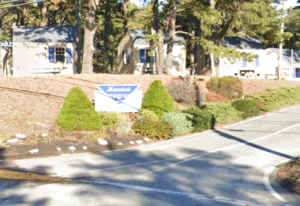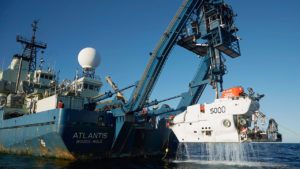STOW, MA – State Fire Marshal Peter J. Ostroskey and Massachusetts Firefighting Academy Deputy Director Joseph Klucznik are pleased to announce 18 fire and police officers completed the Massachusetts Firefighting Academy’s six-day Advanced Fire Investigation course on Friday, October 21, 2016. This rigorous professional training provides public safety professionals with the advanced skills to accurately determine the origin and cause of fires in their jurisdictions and together, build solid, prosecutable cases.
Team Concept of Fire Investigation
State Fire Marshal Ostroskey said, “The team concept of fire investigation has been used successfully in Massachusetts for over 20 years and it starts with joint training.” He added, “When police and fire are trained in the same techniques and procedures together, the consistency leads to accurate origin and cause determinations, and when arson is the cause, solid criminal cases.”
Massachusetts Firefighting Academy Deputy Director Klucznik said, “This course provides students with fire scene experience from investigation through courtroom testimony. They are exposed to the investigatory process as outlined in the National Fire Protection Association Standard 921: Guide for Fire and Explosion Investigations.”
18 Graduates: 13 Firefighters, 3 Local Police, & 2 State Police Officers
The 18 graduates included firefighter Justin White of the Harwich Fire Department.
The six-day advanced fire investigation course covers the concepts of fire behavior, scene examination, fire scene documentation, evidence collection, witness interviewing, and management of major fire investigations in more depth than the basic fire investigation class. It also addresses the legal issues of managing fire scenes, evidence collection, and concludes with practical exercises of participating in the courtroom process. Groups of students deliver case briefs on relevant fire and arson cases before a real judge. Judge Serge Georges Jr. of Boston Municipal Court, Roxbury Division, heard the presentations and queried the students. The program covers unintentional fires, intentionally set fires, and fatal fires.
Students learn how to effectively collect evidence samples, how and when to avail themselves of resources such as accelerant-detection canines, state police fire investigators in the Office of the State Fire Marshal, and technical experts such as electricians.
Origin and Cause Determination
Fire investigators work to first determine the area of origin of the fire and then its cause. Once they are able to determine where the fire started, they often rely on witness statements to identify the possible sources of ignition at that point and then work to eliminate each possible ignition source, one by one, until they are left with only one most probable cause. Fire investigators are trained to examine a fire scene by going from the minimum amount of burn damage to the point or points with the maximum amount of burn damage. The rationale being that the fire has been burning longest where the most damage is and that is often where the fire began. In addition, they learn to identify fire patterns which can help investigators determine the intensity and duration of the fire, and the direction in which it spread.
Witness-Driven Protocol
Massachusetts uses a witness-driven protocol of fire investigation. Investigators want to interview people who know the building or saw the fire start as quickly as possible while memories are fresh or before those displaced by the fire become hard to locate. Investigators compare the witness statements to the evidence found in the forensic scene examination to determine the cause of the fire. With possibly a large number of people to interview quickly, the benefit of the added manpower a team investigation brings is clear. Investigators compare notes and often need to re-interview witnesses for clarification. A deep understanding of fire behavior is essential to evaluating witness statements.
Ostroskey said, “It is a challenge to determine the cause of the fire when so much of the needed evidence is destroyed by the fire itself. Fires can also create evidence which assists investigators. This training provides our local fire and police investigators with the skills and knowledge to meet that challenge.”
This course was developed in accordance with NFPA Standard 921: Guide for Fire and Explosion Investigations and NFPA Standard 1033: Professional Qualifications for Fire Investigator.
The Massachusetts Firefighting Academy, a division of the Department of Fire Services, offers this program, tuition-free.
Media release furnished by Mass Department of Fire Services
























